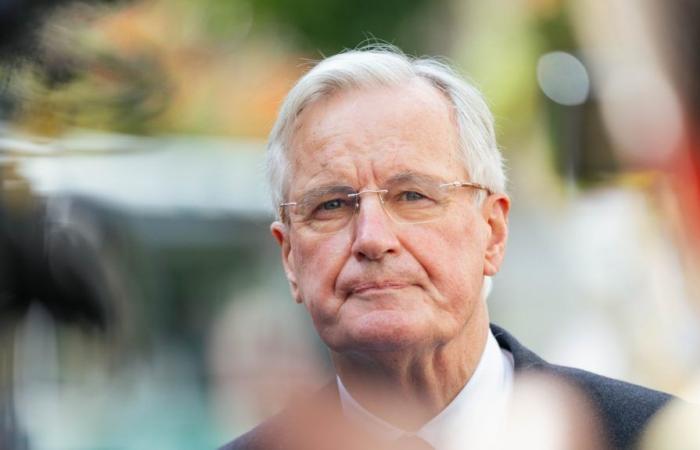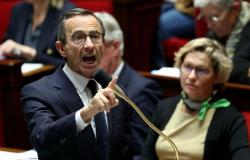In a study published Wednesday October 16, 2024, the OFCE (French Observatory of Economic Conditions) fears that the 2025 budget will have too severe an impact on growth. Without the promised austerity measures, this could have been 1.6 points of GDP, but as things currently stand, the finance bill would reduce growth by 0.8 points of GDP per year. next, the report says.
In agreement with these forecasts, the economist Anne-Laure Delatte, research director at the CNRS attached to the University of Paris-Dauphine-PSL, made her own calculations, using a macroeconomic model close to that of the OFCE. “It is a model designed by the Treasury and INSEE and used on a daily basis, which reproduces the structures of the French economy and makes it possible to simulate the effect of political measures,” explains the one which rather expects 0.6 points of growth.
“The middle and working classes are indeed impacted”
Thus she warns, like the High Council of Public Finances (HCFP) and other economists before her, against the recessive effect of the budget. “If as a person you cut your expenses, it has no effect on your income. But the State, yes”she summarizes. A concrete example: the reduction in reimbursement for medical consultations. These €12 which will no longer be reimbursed directly by Social Security, either you are one of the 95% of French people who have mutual insurance and it reimburses you, but increases its rates to amortize these new expenses, or it costs you straight away. »
Another example: the postponement of the indexation of pensions to inflation until 1is July. “It’s a permanent loss of income, since we’re going to revalue it at a lower level than what you should have revalued. » A shortfall estimated between €150 and €200 over the period concerned, per retiree.
It is for these reasons that Anne-Laure Delatte – who also participated in the development of an alternative budget presented by the New Popular Front, with the economist Lucas Chancel – believes that “the middle and working classes will indeed be impacted”.
“Bad debate”
The tax on very high incomes is far from being sufficient, according to her, to find a balance. “I find it quite shocking that heritage is not being touched. If you really want to collect revenue for the community, you touch their assets, not their income, which is underestimated”she defends.
It’s a “bad debate”, sweeps away Gilbert Cet, professor of economics at Neoma Business School, who recalls that “France remains one of the countries that taxes the most”.
According to figures from the OECD (Organization for Economic Co-operation and Development) for the year 2022, France comes at the top of the thirty-eight developed countries studied, with 46.1% of GDP devoted to compulsory deductions (taxes). and social contributions).
He prefers to opt for a more optimistic position, also criticized by the government which, according to the HCFP and the OFCE, did not take enough account of the most negative scenarios. “Talking about 0.8 points seems a little excessive to me,” he said, although the effect was inevitable. “Qualitatively, of course it can take away from growth. We cannot carry out fiscal consolidation without impact on growth. »
The risk of a tax exodus?
According to him, the government is also playing on the confidence of the French. “It tackles the difficulties of public finances head on: it can also reassure households. Doing nothing can cause wait-and-see behavior. This means exposing yourself to a huge weakness in investment – France would no longer be attractive –, to precautionary household savings and a risk of market sanctions. The cost for French growth would be colossal. »
But this forgets, according to Anne-Laure Delatte, the loss of activity due to the austerity of certain measures. “This is what the OFCE also says: if you take 42 billion, the deficit goes from 6 to 5% of GDP, according to government forecasts. Certainly you reduce the deficit, but you also reduce activity for next year, and therefore revenue. This offsets part of the savings made. » According to his personal calculations, “This will cause a loss of 10 billion euros.”
Like the New Popular Front, the economist rather advocates a levy “on the assets of the super rich”which would report “15 billion in the year”. In other words, “go find recipes where it hurts less”she believes.
Projections that displease more liberal economists. “Focusing everything on taxes would obviously scare away investors”Judge Gilbert This. “The risk of these bad debates is to impoverish the finance bill in its determination, at the risk of leading to lame compromises. »
In its various reports published on the subject, France Stratégie has observed a slight slowdown in tax exile since the abolition of the ISF in 2018, which concerns a few hundred taxpayers. While recognizing, however, that no “reorientation of the savings of the taxpayers concerned towards the financing of businesses” could not be proven. And therefore no real effect has been demonstrated on the country’s economy.
The tax on high incomes at the heart of the debates
Among the flagship measures of the 2025 budget is that of the contribution requested from the richest. A tax which would concern the highest earners, those who have a reference tax income greater than €500,000 for a couple and €250,000 for a single person. This contribution could affect 24,300 tax households instead of the 65,000 initially mentioned by the government.
In the Finance Committee, deputies approved an extended version of this tax, proposing to make it permanent and no longer temporary. The general rapporteur Charles de Courson (Liot) also wishes to limit as best as possible the “tax optimization possibilities”.






